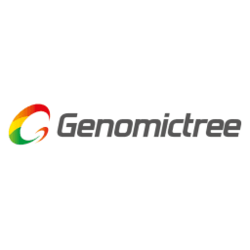Promis Diagnostics, a U.S. subsidiary of Genomictree, said its in-vitro early detection product for bladder cancer, EarlyTect-BCD, has received breakthrough device designation from the U.S. Food and Drug Administration (FDA).

Breakthrough device designation is a review process granted by the FDA to expedite the review of innovative technologies that can potentially improve the lives of people with life-threatening or permanently disabling diseases.
The program aims to accelerate development, evaluation, and review while maintaining regulatory standards to ensure that innovative medical devices are available to patients and providers in a timely manner.
EarlyTect-BCD detects bladder cancer through the urine of patients with hematuria. The device uses real-time polymerase chain reaction (RT-PCR) to measure the methylation of a specific site on the PENK gene, which is a biomarker for early detection of bladder cancer.
The company has conducted multiple independent exploratory clinical trials, which have confirmed that the device exhibits high accuracy. In diagnosing patients at a high risk of bladder cancer, the device has demonstrated sensitivity and specificity rates of over 90 percent.
The company has also recently validated the device for monitoring the recurrence of bladder cancer and is currently conducting a large-scale prospective confirmatory clinical trial to obtain a manufacturing license from the Ministry of Food and Drug Safety for the purpose of early diagnosis of bladder cancer among patients with hematuria.
While hematuria is a typical symptom of bladder cancer, only 5-20 percent of patients with hematuria are diagnosed with bladder cancer.
However, there is currently no objective method for primary assessment of bladder cancer risk in patients with hematuria, so most patients undergo unnecessary cystoscopy.
The standard test, cystoscopy, requires an endoscope to be inserted into the urethra, causing extreme pain to the patient and incurring high medical costs.
As a result, the company stressed that the development of an in vitro early detection method with non-invasive, convenient, and accurate performance remains an unmet medical need.
"We will continue to work with the FDA to accelerate the process of definitive clinical approval," said Justin Lee, head of business strategy and operations at Promis Diagnostics. "We look forward to making the EarlyTect-BCD test available to U.S. healthcare providers and patients."
Genomictree CEO An Sung-whan also said, "The FDA's breakthrough medical device designation for EarlyTect-BCD recognizes the potential of this innovative diagnostic technology."
The FDA's breakthrough device designation will enable the company to introduce a diagnostic product to the U.S. diagnostic market that can identify bladder cancer patients at an early stage and provide them with effective treatment, he added.

